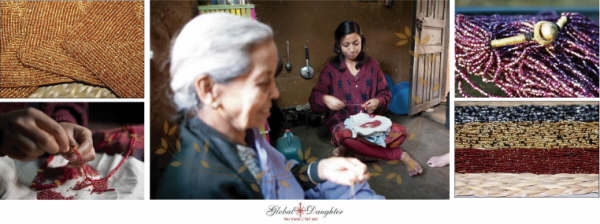The historic elections in Nepal take place tomorrow, April 10th. This is the first election in the country in a decade. International media is all over the place here reporting the rallies, protests, violence and campaign abuses. We have been told to stay inside our homes for 48 hours leading up to the 10th and all of April 11th as a precaution. There are bombs going off all over the city and candidates in different parts of the country are being murdered, injured and intimidated. At least two candidates have been murdered by opposition parties. Voters are being harassed to vote for certain parties and a few of the rouge factions are strong arming voters through violence, extortion and threats. It has been, by democratic standards, anything but a "free and fair election." It is eerily similar to the repressive and disastrous elections recently held in Kenya, East Timor, Zimbabwe and Pakistan.
There are 54 political parties and over 9,000 candidates in 75 districts of the country vying for 601 seats in the Constituent Assembly. This Assembly will write the new Nepal Constitution. This is not a general election. Those voted in will not be members of parliament or executive heads- they will be members of an assembly that will map out the new democratic structure of the country. The country has been transitioning from a monarchy to a democracy since the People's Movement of April 2006. It has been a slow, painful and deadly process so far for the last Hindu kingdom in the world. There has been 240 years of monarchy rule so you can imagine the revolutionary change this will bring about.
It is a tense environment throughout the country- especially in places in the Terai region and regions where Maoist (Communist Party Nepal) have a strong hold. Since the beginning of the election campaigning they have been a part of a slew of human rights abuses. Their leaders have signed commitments not to use violence during the period, but the implementation of these commitments remains to be seen. They go into villages and tell villagers if they do not vote for them they will come back and kill them. They say that they will be using binoculars to see how they vote at the polls and if they do not check the Maoist candidate they will suffer the consequences. The simple, peaceful and uneducated voters in these areas are terrified.
So now we wait. We wait to see what will happen on the 10th. If certain political parties do not win seats, there will more than likely be intensified protests and violence. At this point there is no way these elections can be free, fair or safe for voters. We visited far flung villages in the Terai and the people are skeptical that any party they vote in will help solve their many problems. They lack survival commodities like water, food, education- during election times the candidates sweep in and tell them they will see to their needs if they vote for them. In reality, they will never return to those villages and the promises made will fade away as they have since 1990. These poor and unaware villagers are used as tools and in some cases are bought with pay offs by political parties.
We recently went to the Terai to observe the campaign of a woman candidate in the Mahottari District. She is the only woman candidate up against 19 men (this lopsided ratio is representative of most districts across the country). I have connections with her through the NGO I work for in Kathmandu. We wanted to see the process and be a part of this historic period for women in Nepal and the country as a whole. We had to be escorted by police security as we walked through the villages because some splinter factions of popular parties (basically thugs) are terrorizing and beating up anyone associated with rival parties. We actually met up with one of these groups as we went door to door with the candidate to observe the process. We were told to return to the secure jeep and stay there in case a brawl ensued. Nothing came of the meeting, but the two different political party vehicles, adorned with party flags and supporters, parked side by side for hours. This creates such an uneasy feeling in normally peaceful and docile villages.
We urge you to follow the election in the next few days through the media. The Kathmandu Post online is a good resource: http://www.kantipuronline.com/. We also recommend Al Jazeera online, they cover events in detail: http://english.aljazeera.net/.
The conditions here could change at any minute and we will try to keep you posted on the blog. The outcome of the elections will change the course of history in this incredibly fragile place. Like Nepalis here and abroad, we hope for the better.

No comments:
Post a Comment